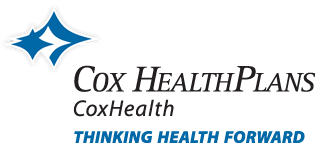Coronavirus Scams – FTC Tips on How to Protect Your Personal Information
March 23, 2020, 3:00 pm
With the current situation, it is important to inform and protect those most vulnerable to Coronavirus scams with guidance from the Federal Trade Commission (FTC). Per the FTC, Coronavirus scammers are using e-mails, texts, calls and social media to retrieve personal information.
Tips to Avoid Coronavirus Scams:
- Don’t click on links you are not familiar with. Links sent in e-mails or posted on social media could download a virus onto your computer or device, enabling it to retrieve personal information without you knowing. To combat this, ensure your anti-malware and anti-virus software on your personal computer is up-to-date.
- Watch for suspicious or persuasive e-mails. E-mails may claim to be sent from experts with the Centers for Disease Control and Prevention (CDC). For the most up-to-date information, visit the Coronavirus sections of the Centers for Disease Control and Prevention website and the World Health Organization (WHO) website.
- Be cautious of phone call scams. The government would never ask for your bank account information, social security number or credit card information through a phone call.
- Hang up on robocalls and don’t press any numbers. Pressing a number may lead you to more robocalls to pitch everything from Coronavirus treatments to work-at-home schemes.
- Fact-check information. Before passing on any messages, contact trusted sources and visit What the U.S. Government is Doing for links to federal, state and local government agencies.
- Ignore offers for vaccinations. Do not trust ads online or through e-mail claiming to offer treatment or a cure for COVID-19. Ask yourself, if there had been a medical breakthrough, would you be hearing about it for the first time through e-mail or social media?
- Do not let anyone rush you into making a donation. If someone is requesting a donation in the form of gift cards (iTunes, Amazon, etc.) or wiring money, do not do it. The FTC advises everyone to do their research on a charitable organization before donating.
To stay informed on the latest scammer techniques, the FTC recommends subscribing to their consumer alerts. They also advise to report any suspicious claims, which you can here.
Sources:
- https://www.consumer.ftc.gov/blog/2020/02/coronavirus-scammers-follow-headlines
- https://www.consumer.ftc.gov/features/coronavirus-scams-what-ftc-doing
- https://www.consumer.ftc.gov/sites/www.consumer.ftc.gov/files/coronavirus_sharables.png

